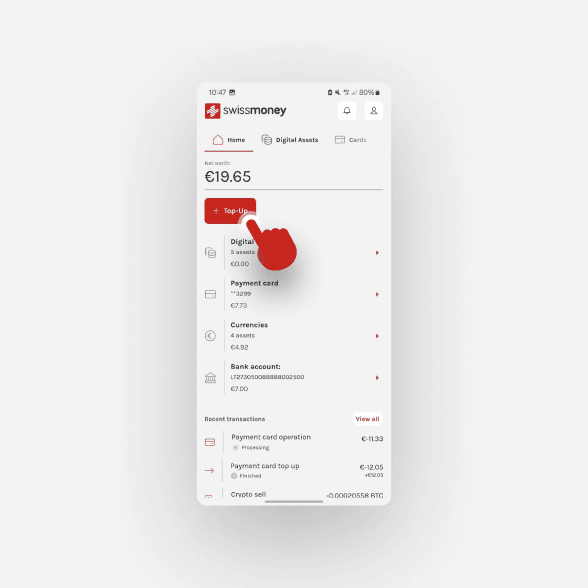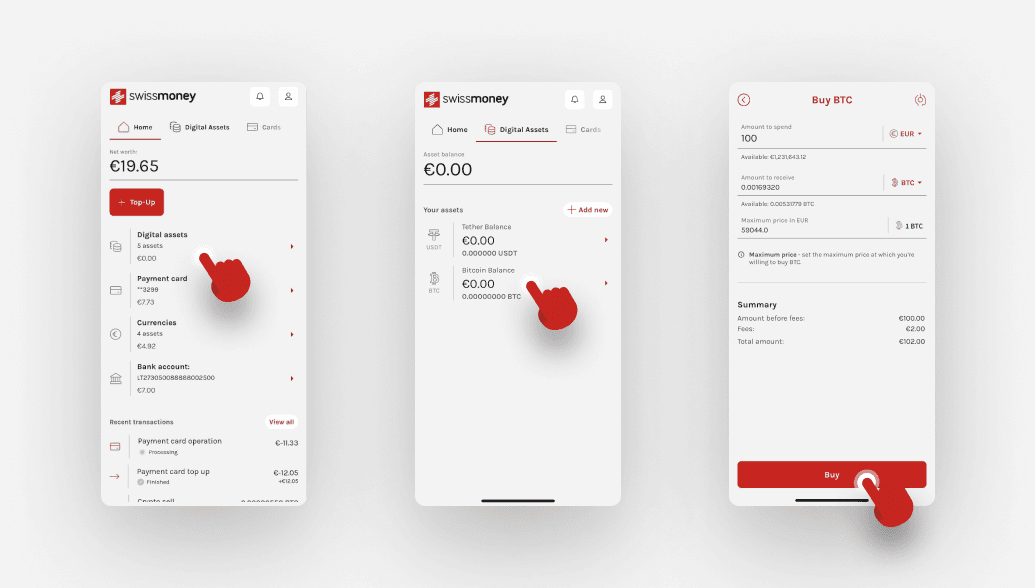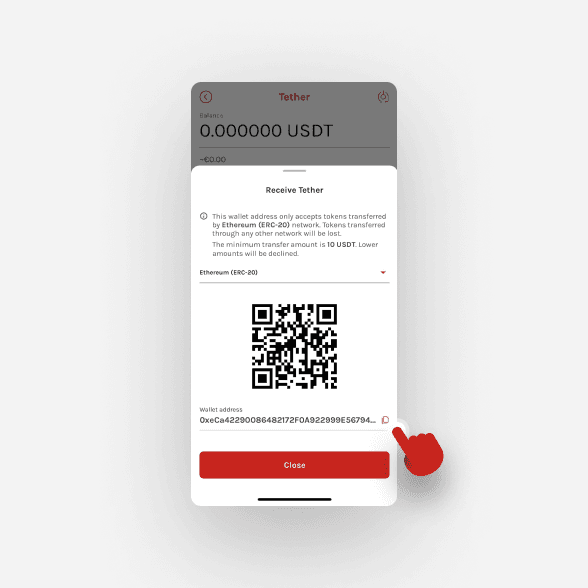[key_takeaways]
- Crypto exchanges are platforms to trade digital assets.
- Centralized exchanges are user-friendly but may have higher risks.
- Decentralized exchanges offer privacy and control but can be complex.
- A hybrid exchange combines features of both centralized and decentralized exchanges.
[/key_takeaways]
In the first quarter of 2024, the crypto market cap increased by 64.5%, reaching a high of $2.9 trillion on March 13. In this industry, crypto exchanges are pivotal in enabling users to buy and sell digital assets.
They function similarly to traditional stock markets but focus on cryptocurrencies like Bitcoin and Ethereum.
This guide explores crypto exchanges, delves into the different types, and examines their roles in the digital economy.
With increased user and transaction volumes, understanding crypto exchanges is essential for anyone navigating this digital financial frontier.
What is a crypto exchange?
A cryptocurrency exchange is a digital platform that functions similarly to traditional financial markets but specializes in trading digital money.
Unlike commodities exchanges that trade in goods like oil or coffee, crypto exchanges focus solely on digital assets such as cryptocurrencies.
These platforms provide a vital service in the digital economy, enabling individuals to trade digital assets, manage transactions, and engage with the cryptocurrency markets.
📚Related: What is Cryptocurrency and How Does it Work?
How do crypto exchanges work?
Cryptocurrency exchanges are the backbone of the cryptocurrency trading industry, enabling the buying and selling of digital assets. They ensure liquidity and facilitate price discovery for various cryptocurrencies. Here’s how these platforms operate:
- User registration and verification: Users register and complete a Know Your Customer (KYC) verification process to ensure security and compliance with financial regulations.
- Deposit funds: Verified users can deposit funds into their accounts using fiat currencies (USD, EUR, GBP) or digital money (Bitcoin, Ethereum) through bank transfers or digital wallets. Fiat currencies can be deposited into crypto exchanges for trading.
- Trading digital assets: Users can buy, sell, or trade digital assets. Exchanges offer platforms for direct purchases or more complex transactions like margin and futures trading.
- Order types and execution: Exchanges support various order types, such as market, limit, and stop orders. The exchange’s matching engine pairs buy and sell orders to execute trades.
- Withdrawals and transfers: Users can withdraw digital money to private wallets or convert it to fiat and transfer it to bank accounts. Some exchanges offer crypto debit cards for direct spending of digital assets.
- Security protocols: Exchanges implement security measures like encryption, centralized servers, and offline cold storage to protect user funds and data from cyber threats. Blockchain technology underpins most crypto exchanges, ensuring transparency and security in transactions.
These steps ensure a seamless and secure trading experience on crypto exchanges, adhering to global financial regulations.

Why do you need a crypto exchange?
Crypto exchanges serve as a gateway to the broader financial markets for cryptocurrencies.
Understanding the necessity of cryptocurrency exchanges can help users effectively engage with the digital economy. Here are several reasons why utilizing a cryptocurrency exchange is essential:
- Access to the crypto market: Crypto exchanges provide the primary means for individuals to enter the cryptocurrency markets. Without exchanges, buying and selling digital assets like Bitcoin, Ethereum, or other altcoins would be less accessible.
- Liquidity provision: Cryptocurrency exchanges offer the liquidity necessary for smooth trading by aggregating trades from numerous users.
- Price discovery: Crypto exchanges are vital for price discovery, where the current market price of cryptocurrencies is established.
- Secure transactions: Prominent exchanges implement robust security measures to protect user funds and personal information, including encryption, two-factor authentication, and sometimes storing a significant portion of assets in cold storage.
- Diverse trading options: Many crypto exchanges offer various trading options and financial instruments, including spot trading, futures, options, and margin trading.
Pros & cons of cryptocurrency exchanges
While cryptocurrency exchanges offer an essential gateway to the trading and management of digital currencies, they also have disadvantages. Here's a balanced view of their pros and cons:
| Pros | Cons |
| Extensive Market Access | Security Risks |
| High Liquidity | Regulatory Uncertainty |
| User-Friendly Platforms | Potential for Market Manipulation |
| Diverse Trading Options | Complex Fee Structures |
| Integration with Traditional Finance | Technical Barriers for New Users |
By carefully considering these pros and cons, individuals can make more informed decisions about engaging with cryptocurrency exchanges, balancing their need for access and functionality against potential risks and costs.
What are the different types of crypto exchanges?
Crypto exchanges vary primarily in structure and the degree of control they offer users over their transactions and funds.
Understanding these variations is crucial for choosing the exchange that best suits your trading needs and preferences, whether centralized or decentralized.
Here's an overview of the main types of cryptocurrency exchanges:
Centralized Exchanges (CEX)
Centralized exchanges are the most prevalent form of cryptocurrency exchange. They act as a middleman between buyers and sellers, processing trades and storing user funds.
Due to their intuitive interfaces and customer support, centralized cryptocurrency exchanges are often seen as more user-friendly. Centralized exchanges provide higher liquidity and faster transaction speeds than their decentralized counterparts.
- User-friendly: A centralized exchange typically offers more user-friendly interfaces and customer support.
- High liquidity: They provide greater liquidity due to the large trading volume.
- Regulatory compliance: Centralized cryptocurrency exchanges also comply with regulatory requirements, which can provide an added layer of security and trust.
However, centralized cryptocurrency exchanges pose a higher risk of security breaches because they store users' funds on the exchange.
Decentralized Exchanges (DEX)
Decentralized cryptocurrency exchanges operate without a central authority. A decentralized exchange allows for direct peer-to-peer transactions. Trades on a DEX are facilitated directly between users through an automated process.
Unlike centralized exchanges, decentralized platforms do not require users to deposit their funds on the exchange. This type of exchange is praised for enhancing user privacy and reducing the risk of security breaches since funds do not need to be deposited on the exchange.
- Enhanced security: Users retain control of their private keys, reducing the risk of hacking.
- Privacy: No need for personal information for account creation, offering users anonymity.
- Peer-to-peer: Direct transactions between users without the need for intermediaries.
However, DEXs often suffer from lower liquidity and slower transaction speeds and can be less user-friendly, especially for newcomers to the crypto world.
📚Read More: Best Decentralized Crypto Exchanges
Hybrid Exchanges
A hybrid exchange combines the usability of centralized exchanges with the security benefits of decentralized cryptocurrency exchanges. It facilitates trading through a centralized matching engine but allows users to retain control of their keys.
- Balance of security and usability: Offers fast transaction speeds and user-friendly interfaces while allowing users to maintain control over their funds.
- Liquidity and security: Aim to provide higher liquidity than typical DEXs while enhancing security measures.
Hybrid exchanges are still relatively new and may experience growing pains as they try to balance features of both centralized and decentralized architectures.
Understanding these types of cryptocurrency exchanges can help users make informed decisions based on their specific needs, such as security preferences, transaction speed, and ease of use.
📚Read More: Centralized vs. Decentralized Crypto Exchanges
What are the differences between crypto exchanges and crypto wallets?
Crypto exchanges and crypto wallets serve distinct but complementary roles in the digital currency ecosystem. While both are essential for managing and trading digital money, they function differently and serve different purposes.
📚Related: What Is a Crypto Wallet?
Here’s a detailed comparison to help clarify their roles and differences:
| Feature | Crypto Exchange | Crypto Wallet |
| Primary Function | Facilitates the buying, selling, and trading of digital assets. | Stores private keys used to access cryptocurrency addresses and execute transactions. |
| Control | Users typically do not have control over their private keys; the exchange manages wallet keys and funds. | Users have full control over their private keys and, thus, their funds, enhancing security. |
| Accessibility | Usually requires internet access to manage and trade cryptocurrencies. | Can be used offline, especially in the case of hardware wallets, providing increased security against online threats. |
| User Interface | Often complex, designed for trading with charts, order books, and multiple trading tools. | Simpler, primarily focused on sending, receiving, and storing cryptocurrencies. |
| Security | Higher risk of hacking due to the internet-connected nature of exchanges and the pooling of many users’ funds. | Generally offers more security as it allows users to store their cryptocurrencies offline and manage their own security. |
| Usage | Suitable for active trading and accessing a variety of digital assets and financial products. | Best for long-term holding and everyday cryptocurrency transactions. |
| Dependence on Internet | High, as the platform needs to be online for transactions and trades to be processed. | Low for hardware wallets, which do not require internet access for storing cryptocurrencies but may need it for transactions. |
| Regulation and Compliance | Often subject to financial regulations and must comply with KYC and AML standards. | Less regulated, though this can vary depending on the wallet provider and the jurisdiction. |
Understanding these key differences is crucial for managing and securing digital money effectively.
While exchanges provide the marketplace for trading and liquidity, wallets offer a personal security solution for holding and managing cryptocurrencies.
📚Read more: Crypto Wallet vs. Crypto Exchange
How can I use a crypto exchange to buy and sell cryptocurrencies?
Conducting crypto transactions on a popular crypto exchange like Binance, Coinbase, or Kraken is straightforward and can be broken down into several key steps.
This guide will help you understand how to navigate the process from setting up an account to executing trades.
1. Register and verify your account
The first step to trading on a cryptocurrency exchange is creating an account.

This process involves:
- Signing up with your email address and a secure password.
- Verifying your identity to comply with Know Your Customer (KYC) regulations. This often requires uploading government-issued ID documents.
- Setting up security features, such as two-factor authentication (2FA), to enhance the security of your account.
2. Deposit funds

Once your account is set up, the next step is to deposit funds:
- Choose your deposit method: Most exchanges allow you to deposit fiat currencies (like USD, EUR, or GBP) and digital currencies (like Bitcoin or Ethereum).
- Transfer funds: You can transfer fiat money via bank transfer, credit card, or other payment methods offered by the exchange. For digital currencies, you will send funds from your crypto wallet to the deposit address provided by the exchange.
📚Related: How to Buy Bitcoin with Your Bank Account
3. Trading cryptocurrencies

With funds in your account, you are ready to buy and sell cryptocurrencies:
- Navigate the trading interface: Find the trading pair that matches the cryptocurrency you want to buy or sell. For example, to exchange Bitcoin for Ethereum, look for the BTC/ETH pair.
- Place an order: You can place different types of orders. A 'market' order will buy or sell at the best price. A 'limit' order allows you to set a specific price you want to buy or sell.
- Monitor your trades: Check your account dashboard to see if your open orders and transactions have been executed.
📚Read More: Best Crypto Exchanges for Day Trading
4. Withdraw your cryptocurrency

After trading, you may want to withdraw your digital funds to a personal wallet for added security:
- Select the withdraw option: Choose the cryptocurrency you wish to withdraw and enter the amount.
- Enter your wallet address: Provide the address of your external crypto wallet to receive the funds.
- Confirm the transaction: Verify the transaction details and confirm. Be aware of any withdrawal fees and processing times.
📚Read More: How to Withdraw Crypto to Bank Account
5. Stay Informed
Maintaining awareness of market conditions and exchange policies is crucial:
- Regularly update yourself on market trends and potential impacts on the value of cryptocurrencies.
- Keep informed of changes in the exchange's policies, fees, or security practices to ensure you use the platform safely and efficiently.
Following these steps, you can use a cryptocurrency exchange to buy and sell cryptocurrencies, leveraging the platform's tools and features to participate in the crypto market.
📚Read More: How to Exchange Crypto to Fiat
What are some factors to consider when choosing a crypto exchange?
Choosing the right crypto exchange is crucial for effectively managing your digital funds. Here are key factors to consider:
Security features
- Look for two-factor authentication (2FA), multi-signature wallets, and cold storage.
- Research past security breaches and responses.
- Check if the exchange has insurance for potential losses.
Fees and pricing structure
- Compare percentage fees per trade across platforms.
- Be aware of additional fees for moving funds.
Available cryptocurrencies and liquidity
- Ensure the exchange supports your desired cryptocurrencies.
- High liquidity ensures better price discovery and faster trades.
User experience and customer support
- Choose a user-friendly platform, especially if you're a beginner.
- Opt for exchanges with 24/7 customer support via multiple channels.
Considering these factors will help you select a crypto exchange that meets your trading needs and ensures the security of your digital funds.
📚Read More: How to Create a Crypto Wallet for Beginners

Are there any security risks involved in using a crypto exchange?
Using cryptocurrency exchanges to buy, sell, or trade digital money can expose users to security risks.
Despite the advanced security measures implemented by many exchanges, the inherent nature of online trading platforms makes them a target for cybercriminals.
Here are some of the common security risks associated with using crypto exchanges:
- Exchange hacks: Several high-profile cryptocurrency exchanges have been hacked over the years, causing millions of dollars worth of cryptocurrencies to be lost.
- Phishing attacks: Phishing is another prevalent risk where users are tricked into giving away personal information, such as login credentials or private keys, through fake websites or fraudulent emails that mimic legitimate exchanges.
- Internal fraud: Security risks can also arise from within the exchange itself. Dishonest employees may have access to critical parts of the exchange’s infrastructure and can manipulate or steal user funds.
- Regulatory risks: In some jurisdictions, a lack of comprehensive regulatory oversight can expose users to unrecoverable losses if an exchange goes out of business or is shut down by government authorities.
📚Read More: Cryptocurrency Security: Essential Guide
Conclusion
Crypto exchanges are integral to the cryptocurrency ecosystem, providing platforms for the buying, selling, and trading of digital money.
They offer various features and services, from high liquidity and diverse trading options to user-friendly interfaces and robust security measures.
However, they also come with risks, such as potential hacks and regulatory uncertainties.
By understanding the different types of exchanges and carefully considering factors like security, fees, and available cryptocurrencies, users can make informed decisions that align with their trading needs and risk tolerance.
FAQs
What do crypto exchanges do?
Cryptocurrency exchanges enable users to buy, sell, and trade cryptocurrencies. They act as intermediaries between buyers and sellers, providing the necessary infrastructure to facilitate transactions and ensure liquidity in the cryptocurrency market.
Can you convert Bitcoin into cash?
Yes, you can convert Bitcoin into cash through a crypto exchange. You sell Bitcoin for a fiat currency like USD, EUR, or GBP on the exchange and then withdraw the fiat currency to your bank account.
Can we trust crypto exchanges?
While many cryptocurrency exchanges implement robust security measures and regulatory compliance to build trust, thorough research is essential. Before trusting an exchange with your funds, check for security features, regulatory status, user reviews, and the exchange's history with security incidents.
Which is the safest crypto exchange?
The safest crypto exchanges have robust security protocols, such as two-factor authentication, encryption, and cold storage for virtual currencies.
Read More:

